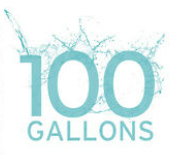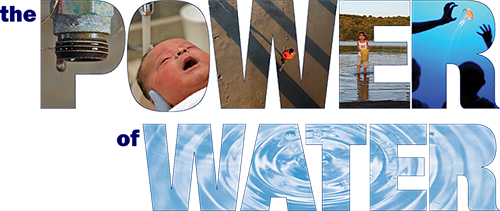Water powers everything
Water powers life
In spring 2012, a group of journalism students began piecing together ideas of what would become their annual video production on what fuels the nation. Students brainstormed conventional fuel options like electricity and petroleum, as well as abstract ideas such as advertising and sex.
"It's a unique opportunity where the students can do whatever they want under the umbrella of what powers the nation," says Josh Davis, a University of North Carolina at Chapel Hill graduate alumnus who served as managing editor on the project. Ultimately, the students chose water because it powers life.
The student group effort, called Powering a Nation, is an ongoing initiative in the School of Journalism and Mass Communication that investigates power sources in the United States. The annual project looks at political, economic, and scientific tensions behind energy sources through in-depth reporting.
The four undergraduate and three graduate journalism students chose to forego a traditional documentary-style video in pursuit of a multi-dimensional, innovative and informational multimedia project; which came to be known as 100 Gallons.

"The water crisis is local," says Davis. "We wanted to pick a subject that affected North Carolinians but was also a global issue." The project was meant to make people look at water as a natural resource that drives life on our planet—both locally and globally.
The Powering a Nation group members discussed whether the project should be politically or socially controversial, but instead decided to use moments with which people could universally identify. "Even if the issue is controversial, finding a character to identify with can make the viewer think more critically about the issue," Davis says, a thought that led them to aim for a widely universal approach.
"You can go anywhere with water," Davis says. "Water is used for energy, food, daily tasks, not to mention what you actually drink." He says water is more important than any other energy-related source. "Water is our most precious resource. You can live without oil—you can't drink oil—but you have to drink water to live."
Through individual video shots stitched together, 100 Gallons shows how water powers life from birth until death. Pausing the video throughout displays additional text, video, interactives and graphics with more information and statistics about water during the paused shot.
Outside professionals and faculty members encouraged the students to challenge the way people look at water. One such coach was UNC-Chapel Hill multimedia professor Steven King. He and his wife were expecting a baby in the first month of production. "We got to shoot the first time his baby was being washed after the birth, which turned out to be the shot that opened the video," Davis says. It pushed the group to think about equally inspiring locations and characters they could shoot to continue in this vein that water powers life from birth to death.
Some stories covered in the project were just one shot, such as the new King baby, but others were more in-depth. "We found this really interesting character outside of Austin, Texas with a rainwater collection business," Davis says. "We knew we needed to do a longer story about him because he was such a unique personality and he thought about water in a very distinct way." Richard Heineken bottles the rain water and sells it to posh hotels and organic food stores.
The students knew they wanted to stay true to journalistic standards by making sure to not set up any shots. "Every one of our shots was shot documentary-style," Davis says. "If we wanted to catch someone walking through a wave we'd have to wait on the pier for a few hours and hope the light was still good when we finally got the shot."
Davis worked in video production after graduating from the University of Maryland in 2000, doing freelance work for the Discovery Channel and National Geographic, as well as teaching video journalism classes at New York University. When his career started to veer into reality television, Davis decided to go back to school for his master's degree in 2010 to focus on more socially significant documentary work. While he was accepted to other top schools, Davis chose Carolina because it offered him a top-notch education and full funding. Leaving school without debt has enabled Davis to continue his fulfilling documentary work on projects like 100 Gallons, putting his talent toward the public good.
♦ Cindy J. Austin



